Officials at Risk of Heat-Related Illness
Jun 1st, 2011As temperatures and humidity levels soar during the summer months, so do incidences of heat-related illness among athletes. Every year preventable heat-related illness and dehydration syndromes affect thousands of athletes at all levels of competition.
At equal risk of heat-related illness are umpires and other sports officials who are exposed to extreme conditions, often during the hottest times of the day. Being aware of the conditions, their symptoms, and means of prevention, are crucial for anyone working or participating in sports in the heat.
What is heat-related illness?
Heat-related illnesses and dehydration symptoms include heat rash, heat cramps, heat exhaustion and heat stroke, a potentially fatal condition. Under normal conditions, your body is able to regulate its temperature by sweating; heat is transferred from the body by the sweat evaporating on your skin. Unfortunately for umpires and athletes, much of your skin is covered by clothing and gear, and there is not adequate skin exposure to facilitate your body's natural cooling mechanism. In addition to that, high humidity levels also impair evaporation, putting you at greater risk.
Other factors can contribute to your risk of heat-related illness, including caffeine and alcohol intake prior to heat exposure, certain medications, being overweight, and being in poor physical condition. Some health conditions, like diabetes and high blood pressure, can increase your personal risk. If you are being treated for a health condition, consult your physician about your risk before stepping onto the field.
What can I do to prevent heat-related illness?
- Monitor your physical condition during games for signs or symptoms of heat-related illness. Keep an eye on your crew members as well!
- Take frequent breaks when possible. If there is shade available, try and move into a shaded area for breaks.
- Remove your hat, mask, or other headgear often to maximize heat loss.
- Drink often and drink regularly; by the time you are thirsty, you are already experiencing a significant fluid deficit.
- Drink more than just water; when you are exerting yourself in hot weather, you are losing electrolytes as well. Replacing lost fluids with water alone can lead to electrolyte imbalances.
- What symptoms should I look for?
- Heat cramps affect people who are sweating a lot during strenuous activity. Sweating depletes your body's salt and moisture levels.
Symptoms:
- Muscle cramps, pain or spasms in the stomach, arms or legs.
- May be accompanied by loss of energy.
First Aid:
- Take a break from activity in a cool place.
- Drink a sports beverage or water with food to aid absorption.
- Avoid strenuous activity for a few hours after cramps subside.
- Seek medical attention if you have heart problems, are on a low-sodium diet, or if the cramps do not subside within an hour.
- Heat exhaustion is your body's response to an excessive loss of water and salt, usually through sweating.
Symptoms:
- Rapid heartbeat
- Heavy sweating.
- Extreme weakness or fatigue.
- Dizziness.
- Nausea/vomiting.
- Irritability.
- Fast, shallow breathing.
- Elevated body temperature.
First Aid:
- Rest in a cool area.
- Drink plenty of water or other cool beverage to replace lost fluids.
- Take a cool shower, bath, or sponge bath.
- Lie down with your legs elevated to ease dizziness and headaches.
- Heat stroke is a condition that occurs when your body becomes unable to regulate its temperature. Heat stroke can cause death or permanent disability. Heat stroke is a medical emergency that calls for immediate medical assistance.
Symptoms:
- High body temperature.
- Confusion.
- Loss of coordination.
- Hot, dry skin or profuse sweating.
- Throbbing headache.
- Seizures, unconsciousness, coma.
First Aid:
- Seek immediate medical assistance.
- Move the victim to a cool, shaded area.
- Remove excess clothing and apply ice packs or cool water to their body.
- How do other umpires prevent heat-related illness?
- Many umpires we spoke to have a plan in place for being sufficiently hydrated prior to working a game, as well as tips for staying cool and hydrated while on the field. The general consensus seems to be that avoiding dehydration syndrome starts the day before, by drinking lots of water.
Umpire Chris Guidry notes, "Hydrate the day/night before. Keep taking in fluids all day from the beginning. If you have to run to the restroom between games, that's a good sign you are staying hydrated."
In areas where humidity is less of an issue, many umpires find that soaking their hat or gear in ice water prior to the game, or using cold packs or towels helps with evaporation and regulating your temperature. It is important to note that while this may keep you more comfortable, you should still replace lost fluids frequently.
Have you ever experienced heat-related illness or dehydration syndrome while umpiring? How did you treat your symptoms?
Sources: Occupational Safety and Health Administration (OSHA); National Institute for Occupational Safety and Health (NIOSH); National Center for Sports Safety; Gatorade Sports Science Institute.
Related Articles
- NASO Summit Atlanta & Officiate Georgia Day Was A Peach!
- Proper Positioning for Throat Guards on Umpire Helmets
- Jim Goes Parental with Umpire Cap & Bill Length Warning on Umpire-Empire Post
- Why the NOCSAE Standard Doesn't Help Umpires / Follow These 5 Steps Instead
- Top 15 Trending Summer Umpire Gear & Apparel
- Watch Jim Kirk’s Webinar on ‘Uniform & Safety’ for British Baseball Federation & European Umpires
- Injury Prevention & Recovery: The Essential Umpire Safety PSAs
- Calling Balls/Strikes from Behind the Mound? Follow an Easy Safety Tip
- Use Caution When Wearing a Cap Under Your Umpire Helmet
About the Author
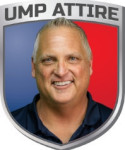
President Jim Kirk
Jim is a leading expert, educator and author on umpire gear, safety & appearance. After playing baseball at Centre College, he worked as a high school umpire. He became involved in E-Commerce while working on an MBA in the early 2000s and bought Ump-Attire.com in 2006, He eventually led it to the leading umpire gear & attire retailer worldwide, a “Best Places to Work in Louisville” honor in 2020, 2021, 2024, and a National Association of Sports Officials (NASO) Preferred Vendor. He maintained a long-standing relationship with Minor League Baseball Umpire Development & Training Academy for 10 years. He serves as an adviser to UMPS CARE Charities, the charity of MLB umpires, served as a 2-term board of director from 2012-2018, and was named their 2015 Ambassador Award recipient. A supporter since the inception of the Wounded Warrior Umpire Academy, he was named to their Board of Directors in 2020.
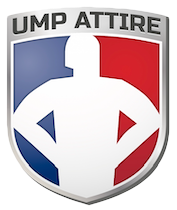
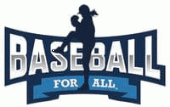

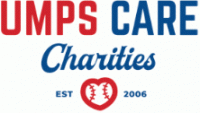


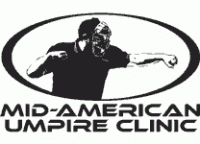

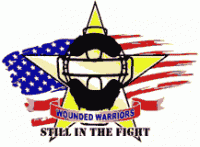


Comments
Be the first to comment on this article!